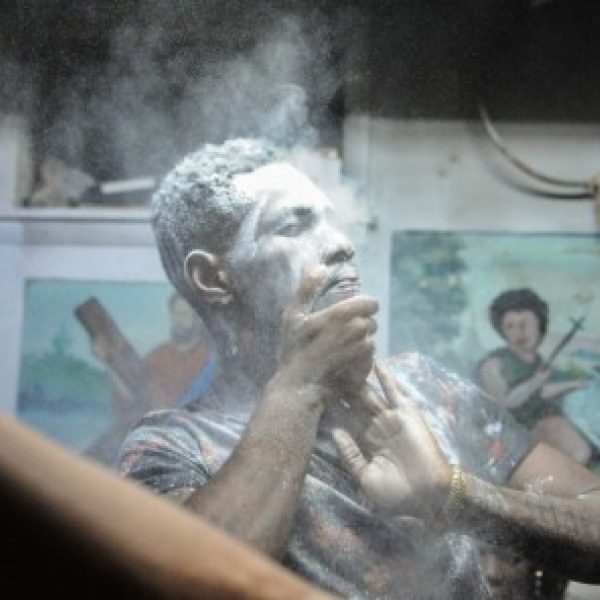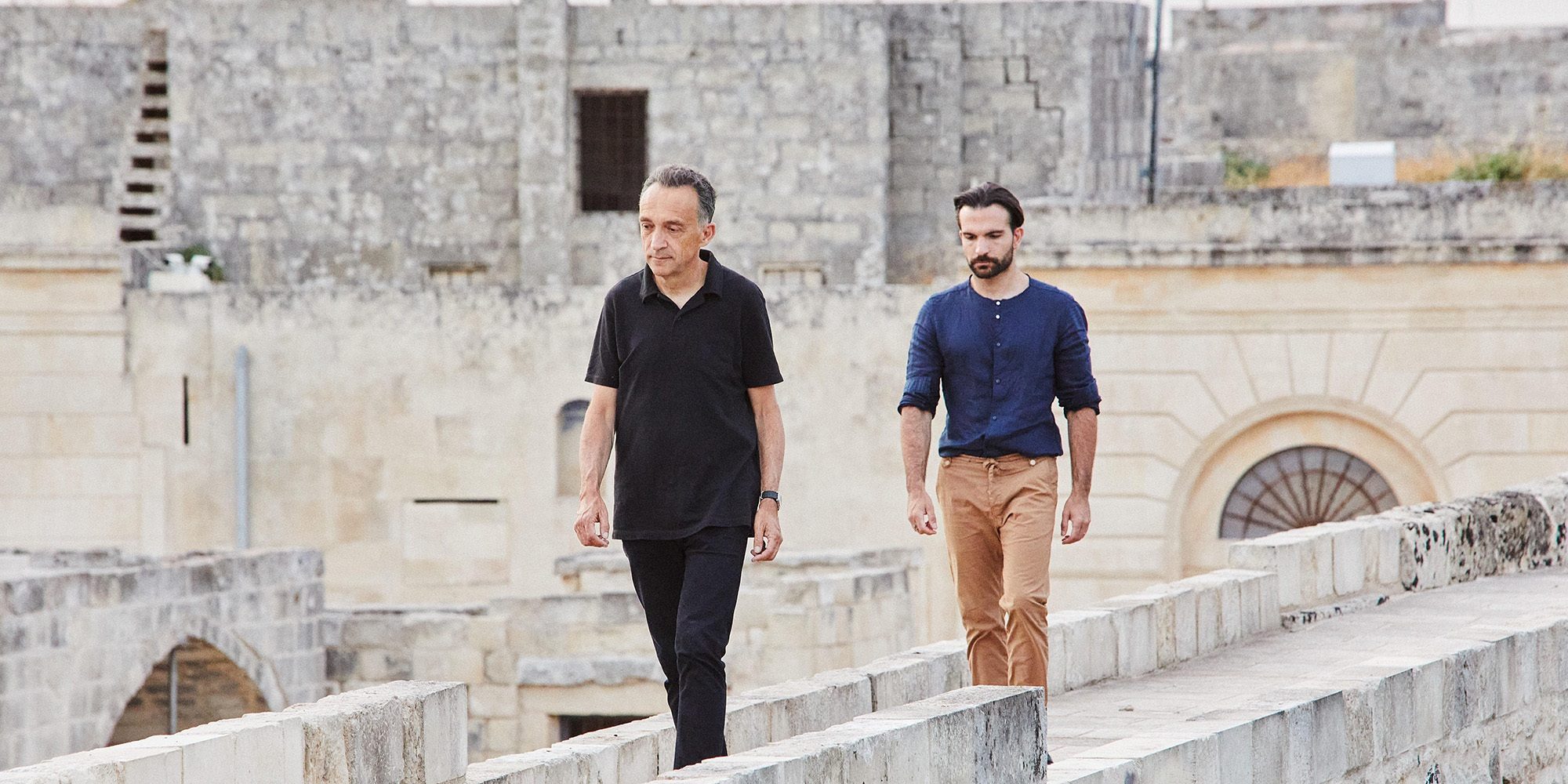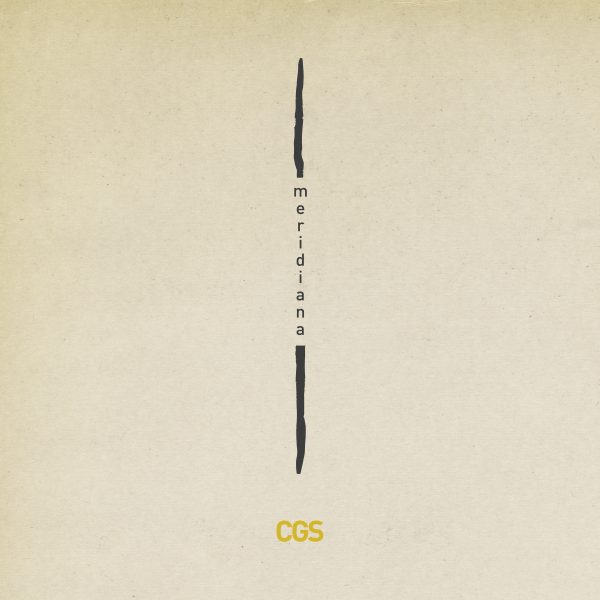Guitarist and producer Justin Adams has made his way through the music of the world—especially North and West Africa—with the attitude of a self-described punk rocker. From his production of Tinariwen’s international debut, to his collaborations with the ecstatic Gambian fiddler Juldeh Camara, Adams’ work has always been about the feel, and the trancier the better. And oh yes, and he’s also toured the world and recorded four albums with Robert Plant’s band the Sensational Shapeshifters.
Conservatory trained multi-instrumentalist Mauro Durante specializes in a variety of southern Italian tarantella trance music, specifically the pizzica style of the Puglia region where he grew up. His parents were part of a pizzica revival ensemble called Canzionere Grecanico Salentino, which Mauro now leads.
The two met a decade ago when Adams performed with, recorded and produced music for CGS. During the time of COVID, these two artist friends have developed a duo presentation, co-writing, improvising and arranging music from their life experiences and beyond. Their 2021 duo release Still Moving is a tour de force of soul-stirring, hypnotic grooves and melodies. Banning Eyre reached Adams in Denmark, where he’s at work on a new project, and Durante at home in Italy for a Zoom call. Here’s their conversation.
Banning Eyre: Great to speak with you guys. Let’s start the title of this album. What's behind Still Moving?
Justin Adams: It originally came as just a lyric in a song. The song was about migration, and it was kind of pulling together the idea of Homer’s Odyssey, which I've been reading for the first time. I was struck by the idea of this guy being pushed around the Mediterranean by forces beyond his control for 20 years. So you know, it's war, revenge and jealousy and greed and all these things personified as gods and goddesses kind of pushing him around against his will. He's constantly getting shipwrecked and washed up in strange places. Some of them are nice and some of them are horrible. I was thinking about how that's kind of still happening now. People are still being drowned in the Mediterranean as a result of forces beyond their control.
And then there was just the idea of still moving in the sense that there's no rest for a migrant. But then it came to have another meaning that was very relevant to me and Mauro becoming stuck in lockdown. I suppose all of us traveling musicians had a particular flavor of feeling about COVID because we’re all kind of addicted to traveling and gigging. That's really our life. And so when that was taken away, we both found that pretty challenging. Then when we finally did get together to make a record, the idea that we were still moving was like, "Thank God. We’re still alive. We're still moving!"
And then I guess it's the contradiction within the words that is interesting, a stillness in moving. I suppose we’re all looking for that kind of still moment where life stops, but the energy and movement of life is absolutely essential.
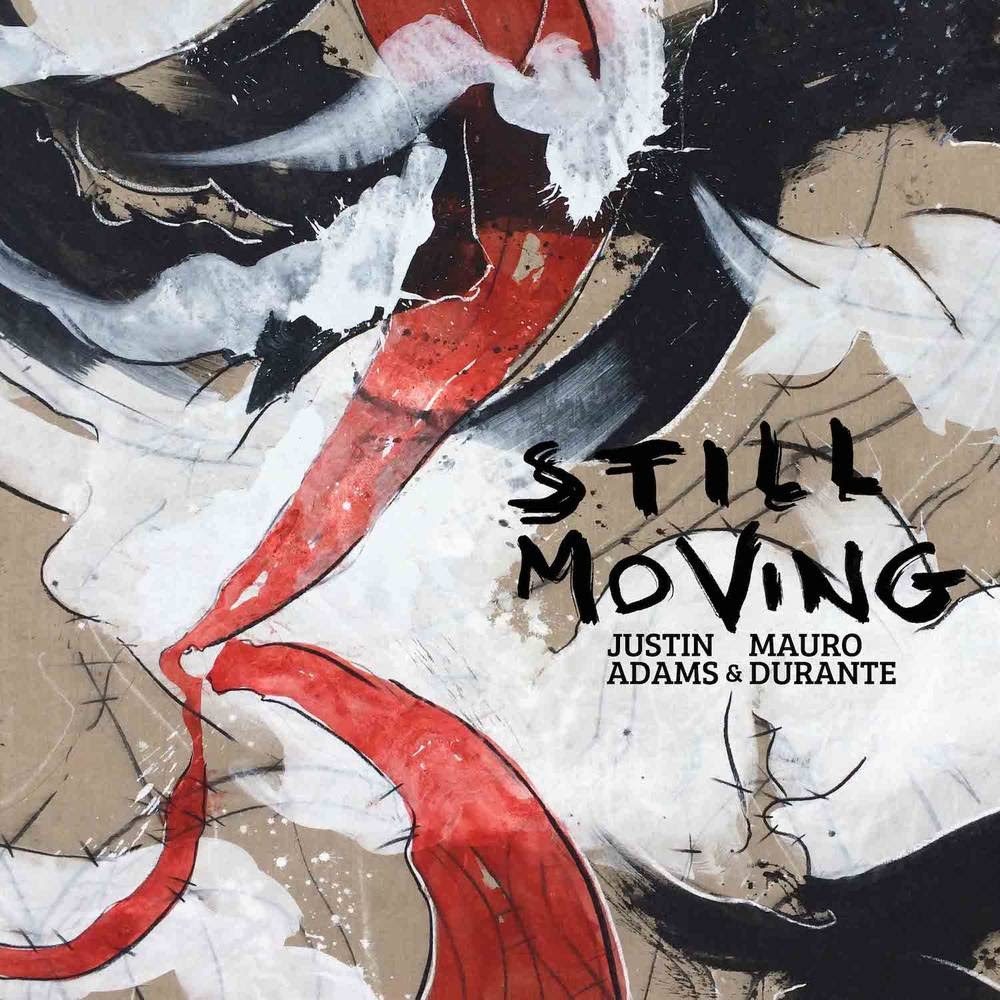
Well, you unpacked that nicely—three different meanings. Mauro, I've known Justin quite a while and we have traversed some of the same territory. But I know a lot less about your musical background. Tell us about it.
Mauro Durante: I grew up in this music. My father was the leader of Canzionere Grecanico Salentino, the band I lead now. The band specializes in traditional music and dances from my area, my region, which is Salento. Salento is located in the southeast of Italy in the region of Puglia. It's basically the heel of the boot. So we are surrounded by the Mediterranean: westward, eastward, southward. We’re like the very last part of the peninsula. So we've been a crossroads of travel and trade with Greece and Albania. We have a history of many different influences and our traditional music is full of that.
So that's where I’m from. Basically I studied deeply my music by growing up in this time because my father and my mother were part of this band. I basically grew up on the stage, and then I joined the band when I was 14 years old in 1998 under the direction of my father and many years later I took on the leadership of the band. My father left me the direction and I kind of re-founded the band by inviting young artists and reshaping the history of the band.
My area of expertise is rooted in the traditional music from my area. The most famous style is the style called pizzica, which is actually an old type of tarantella. It's the same family, the music and dance of southern Italy. And it's also related to a very particular phenomenon which is a ritual of possession called tarantism. It can be compared to other rituals of possession you can find all over the world: the African ones, the Gnawa’s lila, vodoun, and then all those in Central America and South America, santeria and candomble. There are many points in common. But the really fascinating thing is that this ritual could last until the second half of the 20th century in my area, which is part of a western Catholic country.
So we have these legacies that carry some magic and fascination. It's a kind of music that is repetitive, connected to trance, and has many things in common with other musics of trance. So that was one of the starting points, the common ground for me and Justin, because we both love getting into those kinds of grooves, going with the flow instead of thinking about arrangements, solos, solo instruments. We like to be part of this kind of rhythmical flow, the way music transcends any kind of borders and can lead you somewhere else with your mind, within your soul. And it gets your body moving.
As Justin was saying, Still Moving was also a way for us to oppose the stillness of the pandemic. We could still be moving even if we were not traveling. In a way, our music, our connection, our synergy, our friendship was still putting us in movement. That was basically the first key to our connection. We met the first time in 2011 in my area. We have stayed friends throughout the years. So when we decided to try and make something with the two of us, we started from the beginning. We just sat down and played together.
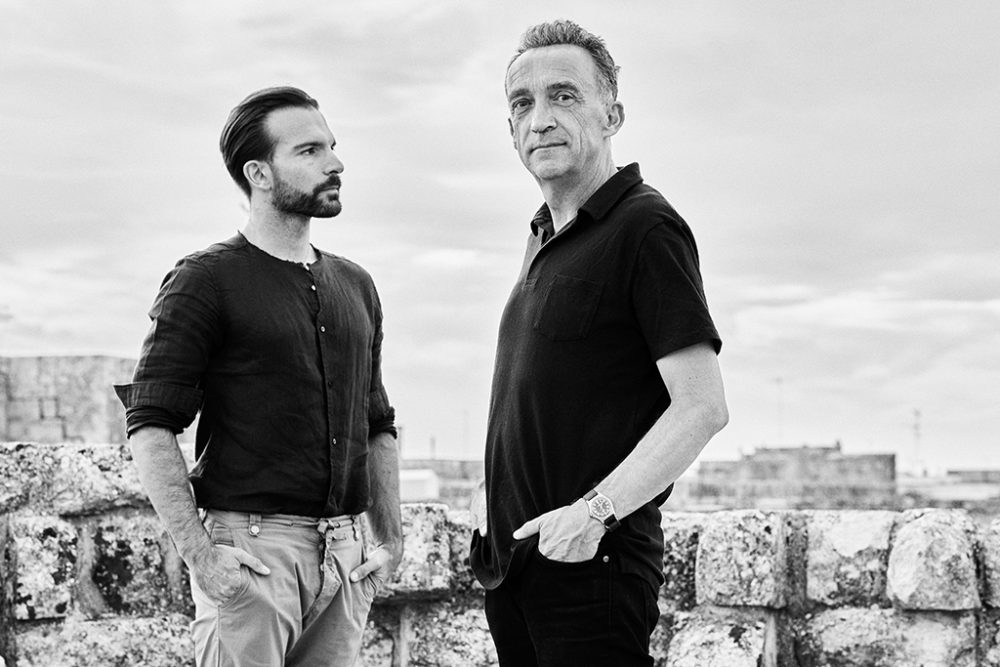
I find it very interesting that you inherited your father's band. Did he start that band, or does it go back even further?
Mauro: Actually, he was already the second generation, although he was one of the founders. The actual founder was Rina Durante, an intellectual scholar, journalist and activist. She was a party communist and openly lesbian in the ’70s, so she founded this band with a political attitude. It was a way to oppose the mainstream but stay with traditional culture, going back to our roots while being aware of the future. It was political. She directed some research, field research, ethnomusicology, stuff like that. And then she founded this band made up of five young people, and among those people were my father, my mother, and also the father of another of the current members of the band. So we are second-generation, but actually the founder is two generations before us. The band was founded back in 1975. Rina Durante died in 2006, and my father died this year.
That's fascinating. Can you just translate the name of the band?
Mauro: Salento is our area, so Salentino means "from Salento." Grecanico refers to a dialect that we speak along with Salentino in the core of this area. This dialect is of Greek Byzantine origin. And Canzioniere is “songbook.” So basically, it’s the Salentino Grecanico Songbook. So was again a sort of political statement, because in those years there were other songbooks, Canzioniere de Lacio, Canzioniere etc… Many songbooks. Actually, it's a tragic name. It's been a curse for us. Really! Because nobody can remember the name, even in Italy.
It is a bit of a challenge for the American tongue. But it does help to know what it means.
Justin: It’s got 13 syllables.
Justin, You've done so many different collaborations over the years, with individuals, with bands, with small ensembles. It seems like collaboration is in your bones. What was special about this one?
Justin: That's interesting. What's different, I suppose, one of the things that's quite interesting is that we decided to work together, I suppose we both thought, "Well maybe we'll have to bring in a singer, or maybe we'll have to bring in a bass player, or maybe a drummer, or something." Maybe the sound of the two of us wasn't going to be enough. In the past 20 or 30 years I have listened to a lot of the old Delta blues, the music from the late ’20s. And then I've recently discovered recordings from the same period that were made in the States around 1929 of Greek stuff. I was listening to those things and hearing how often it's just two instruments playing, or one instrument even.
It doesn't sound small. It doesn't sound weak. It doesn't sound undanceable. So when we got together and started playing, I was kind of thinking, “O.K., maybe we’ll bring something in." And then we both started saying, "Well, actually, it sounds pretty powerful with just the two of us.” Occasionally with Juldeh Camara I did one or two gigs as a duo, but normally we did have at least a percussionist. So this is a really special thing.
Mauro was talking about the rhythmic flow of everything he does, and I think we both play with that sort of feeling. The groove is just always happening, regardless of what we’re actually playing. It's definitely got a pulse to it, so you’ve got two people feeling that same pulse. Also by just having two instead of a third, it's that much easier to get on the same page. You can really lock in with two people. It's a conversation. So that’s something that's really unique.
Apart from that, every tradition has got its own particular taste, and every musician's got their own particular taste. Mauro is a lot younger than me, and I'm really digging that energy coming from a different generation, a different way of seeing things, which I really, really like. Because I think my sort of generation has a terrible tendency to think of the past as the Golden Age. I can feel it myself but I think it's a terrible trap to fall into. You've got to really beware.
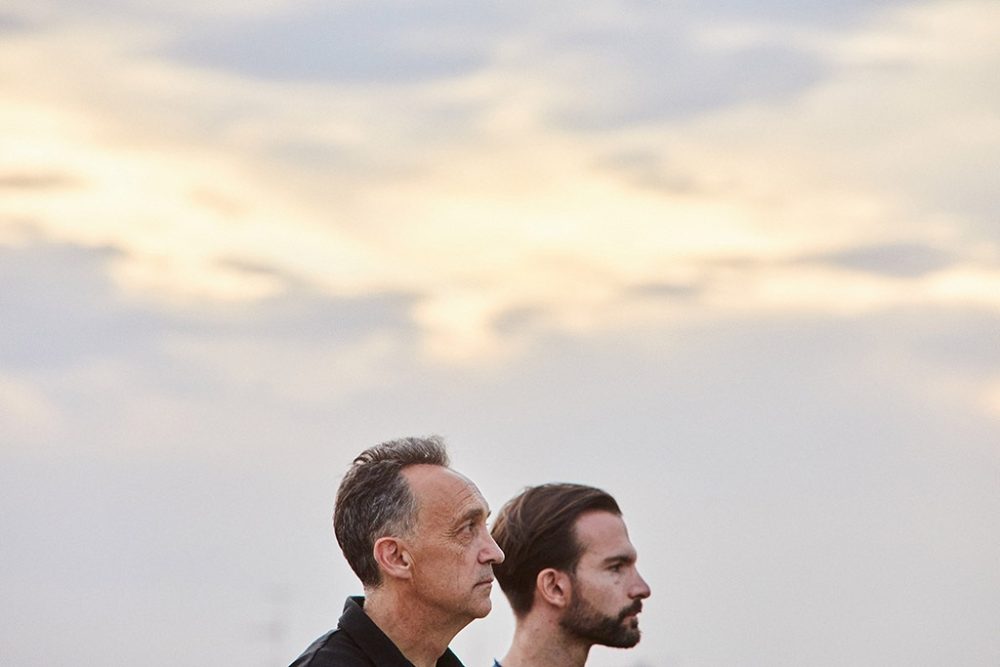
I think you're onto something there.
Justin: So those are a few things that are special about it. And then obviously there's nothing quite like the pizzica tradition. But Mauro is not at all limited to that. I love the fact that his reference points could easily beat Billie Eilish or it could be Nirvana or White Stripes. Or baroque classical music could be a reference point. I love that sort of openness to every kind of music. I love that no-boundaries approach. Nobody ever says, "Oh, no, we can't refer to that because it's not world music, or whatever." That's never been my approach, and never will be.
I was going to ask you about playing in a duo. I also love playing with just one other person for just that reason. You're not alone. But you're not in a group. It's all about that one-on-one connection. There's nothing else like it. And also what you say about rhythm, playing with an implied sense of rhythm that's just felt between the two of you, it doesn't have to be explicitly stated, or it can be stated very strongly. You just have that whole range of dynamic options. Mauro, anything you want to add to that, about playing in a duo?
Mauro: Well, I really, really love this stripped-down atmosphere and environment. Because our instruments sound more powerful. Even from the point of view of physics, we have the space and frequencies to expand, to embrace more. Just the power a guitar can have, occupying all the frequencies, the lowest bands to the highest bands. It can give a lot of intensity, and the combination between guitar and my instruments—the violin, or the tamburello, my frame drum—I think it creates a particular blend which sounds unique to my ears. It's something I don't find anywhere else. So we can be easy, direct, straightforward, but also unique. I'm very proud of this combination we’ve made. Everything starts from our own personal musical connection. But then also, I think that the kind of sound we produced with our instruments is kind of its own thing.
Let me ask you about a couple of the individual songs. Let's just start with the opener, "Dark Road Down."
Mauro: Well, that started with my traditional pizzica style on the tamburello. That was traditional rhythm, the one I was telling you about. So basically I started to play that, and Justin found his own way to interact with this sort of riff, a repetitive groove that could along with that pizzica. Justin can tell you about his own points of reference, but again, it's our own thing. It's different. And on top of what he did with the guitar and what I was doing with the tamburello, we were having this kind of call and response singing, which went into totally different styles. And I thinks that's what musically makes “Dark Road Down” so interesting.
Justin: Yes, the rhythm. I first played with that rhythm about 10 years ago, so I've had years to kind of slowly reflect on it and think about it. I'm very much used to the idea. If I've got any kind of role in music—I'm pretty much punk rock, so I don't have rules—but if there is a rule that I do abide to, it's that if there is a percussive pulse, you've got to really respect it and not get in the way of it. If you're going to go against it, you've got to do it knowingly. "Now I’m defying it on purpose." But otherwise, no. So I want to understand the physics of the rhythm, and where the pulse is. And so I've been thinking a lot about what rhythms and what grooves can fit with that tarantella rhythm.
So what I came up with was kind of like a John Lee Hooker boogie, and it fit. It wasn't fighting the rhythm. It had a bounce, which to my mind, that is because it's related to one of those rhythms that physically is a trance-inducing rhythm. It's got a particular bounce and a swing that has to do with that. So in my busy little head, there is a link.
What about the words?
Justin: Oh, the words. It's actually quite funny because my words came out of my sort of autumnal misery. I didn't know what Mauro was singing. But when he comes in, he basically says, "Don't let yourself be thrown into melancholy," or something like that.
Mauro: Well, it's basically saying that, yes, we are feeling overcome by melancholy, and then there's this sort of invocation or wish. I want to throw this melancholy out from my heart. So it's a wish, an invocation, a desire as positive as our suffering.
Transcending through trance, right? What about the song “Amara Terra Mia,” which has such a beautiful melody. What's going on in that one?
Mauro: That's actually a sort of classic Italian song. It was made famous by Domenico Modugno [Italian singer and politician 1928-’94]. The song was rearranged by an Italian composer, and then Domenico Modugno did his version. And the song became famous. The title means "bitter land of mine." So basically, he is describing the beauty and also the saddest things of this land which happens to be mine, because Modugno was from Puglia. Then then it says bitter land of mine, I'm going away. Bitter and beautiful. That's basically the song.
Let’s talk about the song “Calling Up.” I think I recognize some of the lyrics, that bit about the saints marching in... Seems like I've heard that somewhere before.
Justin: [Laughs] I wondered whether we could possibly get away with that. But again, in my crazy little mind, it all made sense. Again it’s the pizzica rhythm, so we’re back to Mauro’s core rhythm. And it was finding guitar grooves that worked with it. I always love it when I find something that's just so simple that fits. So I found this two-note riff in E, which is of course, the greatest key.
For we guitar players. Absolutely.
Justin: We worship the key of E. so there it is. E and G. So I'm happy. And I've got this groove. And then I'm just sort of thinking, feeling the power of that rhythm, and just kind of singing whatever came into my head. I love the idea that we invoke a saint. Although I'm not a religious person, to me it makes sense to invoke a saint. When you're a kid, and say there's a pop star who you idolize, and you invest all your aspirations and hopes and everything that's good about the world you identify with that pop star. That's my way of understanding what a saint is. A saint is this kind of spirit that you invest with all your own love and all your positive sides. You see that symbolized in the figure of this saint. So when you need strength, you invoke the feeling of that. Again, to me that makes total sense. I'm not talking about supernatural beings, but all that positivity is symbolized, and then you call it up.
It's like an ideal.
Justin: Yes, an ideal that you are calling up in yourself to give yourself strength. Like the Irish hymns that are called the breastplate. So you invoke St. Patrick's breastplate, like a shield of armor. You've got tough times ahead, see, you invoke the aspirations. And then I was thinking about the land, being at home all the time, I was thinking about my own countryside around me, seeing the trees growing in the beautiful hills and drawing some strength from that. And then I was thinking about invocation, and New Orleans is the center where the calling up of spirits, of where polyrhythmic music was brought into the New World and it exploded into jazz and improvisation. New Orleans was kind of the seed for changing the world, really.
And so for me to be saying, "When the saints come marching in, "it's like invoking spirits. And by the way, invoking spirits is also what happens in tarantella. St. Paul is often being invoked. Isn't that right, Mauro?
Mauro: Yes.
Justin: So I was just drawing the parallel with the idea of invoking saints. It's obviously a familiar song. I remember my dad telling me that he'd gone to New Orleans—It must've been in the ’60s—there'd be a jazz band playing and they would have requests, a list of songs that they would play, all numbered, and the cost. And the most expensive one was "When the Saints,” and if they did play "When the Saints," the whole place went completely nuts. The whole bar just went off. But you had to pay that 25 bucks for that. You could get other tunes much cheaper than that.
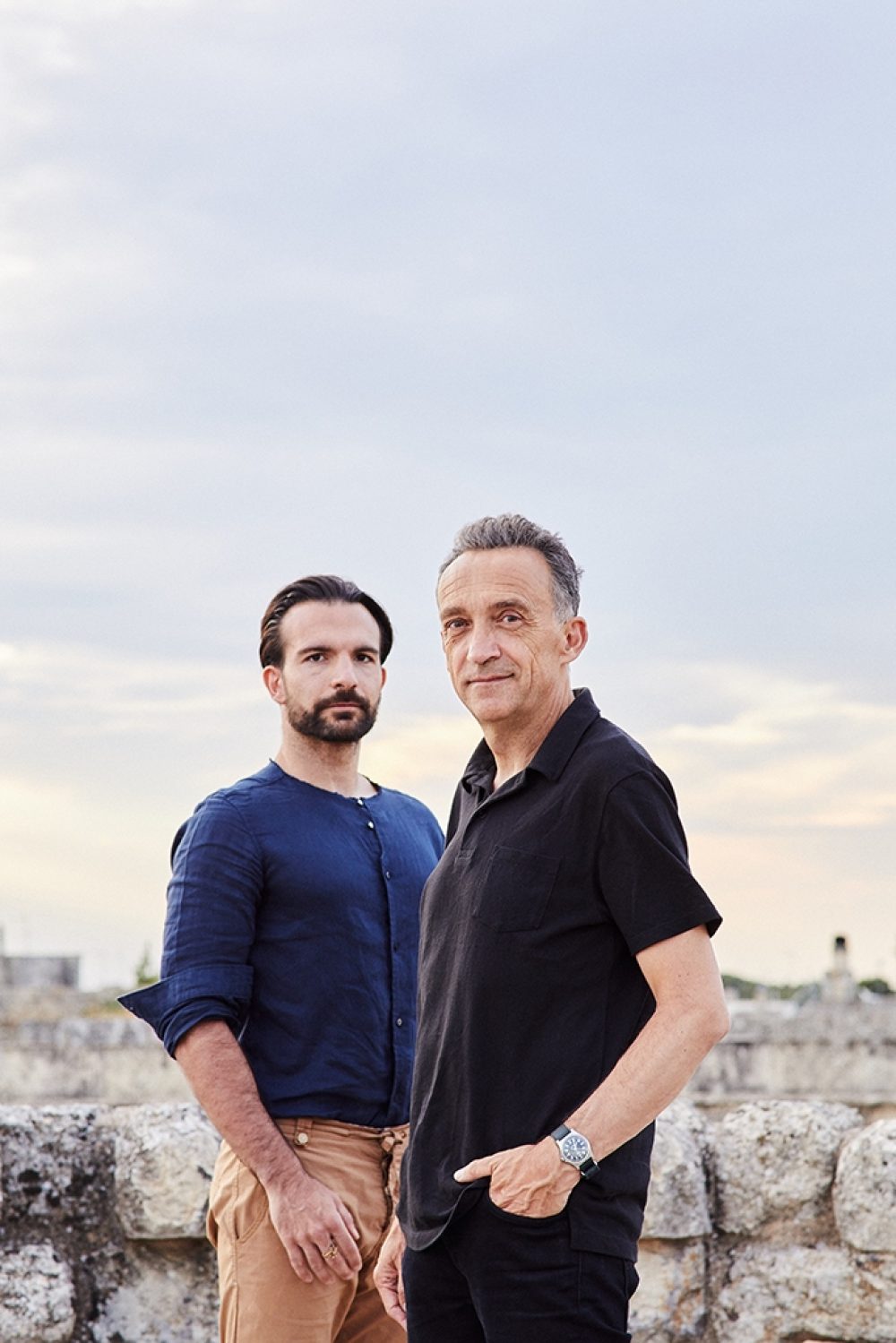
That's a great story. Let's jump to the last song, "Little Moses." That's your cover of a song by the Carter Family from 1929.
Justin: Well, it started when Mauro said that there was another rhythm we hadn't covered much. It was this three-time rhythm. And so it was like, "What can I play that relates to that?" And I suppose because of the history of the way Mauro’s family has gone back and researched it's a little bit like Alan Lomax. Actually, Lomax was in Puglia. So I think of Lomax and I think of Harry Smith. All those researchers. So then came the idea of a Carter Family song in ¾. The song is on the Smithsonian American Folk Music box set, which is a kind of talisman record for me. So it had a great resonance to it. It's surprising to some people, but again, in my crazy little brain, it works.
Anything you want to add to that, Mauro?
Mauro: I didn't know the song. So first we made our version, and then Justin played me the Carter Family original. That was quite a shock. There was a big difference. But then I was very proud because I think it was helpful that I didn't know it. Going with no references at all, I could just play spontaneously with the violin, what I was hearing. And as Justin was saying the coda, the end of the song was like a conversation, because we wanted to expose a different rhythm. So we were kind of twisting a field recording into something new.
“Damme La Manu” is another song that comes from my area, a traditional song, actually coming from a field recording by Alan Lomax. So it's interesting that we can fish many different waters and still manage to come up with something our own.
So to wrap up here, we've referenced a lot of big historical connections between different parts of the world, so many traditions, so many genres. I like what you say about New Orleans. It’s like the thin part of an hour glass where one world flows into another. Did you have guys any thoughts or revelations about these sorts of big connections as you were working on this music?
Mauro: For me, everything starts from the pleasure of making music together. It's not like we try to write something new, or trying to find some magical connection between pizzica and desert blues and punk rock. it doesn't work like that. We just play. We just try to resonate with what we like. It's your job to find influence and references, not ours.
I get that. I think a lot of music carries so much meaning that the people who love it and who create it can’t fully contemplate. We’re all vehicles carrying forward traditions that are inside us, whether we think about it or not.
Mauro: I am really an expert about the music and background of my land and I do think deeply about that. I can quote melodies or lyrics or anything from hundreds of songs. That's one thing. And also I'm curious. I'm curious about reading books and watching documentaries and traveling, meeting people. I love all the music that you were mentioning. When I first met Justin, I listened to all the records he produced and I got interested. If I get interested in something, I like to go deeper. But the music I play is just a reflection of what I am experiencing. You can look at all the paths you might explore in the song, but really, if the song works, it's because we’re really enjoying it. So it's both.
The other really important thing about our project is that it is a live project. Even the album was a live recording. So it's a picture of a performance. Everything is based on the performance, not so much the pre-writing.
Justin: Yes to all of what Mauro says. That's completely how it is. We do both have analytical minds. And I do think about all these things. It's made me think that it's just another realization—you know, talking about New Orleans as a kind of hourglass—the Mediterranean is an hourglass as well. It’s quite incredible to think about Africa and Asia and Europe meeting altogether in this tiny little sea. It's really not big by American standards, by New World standards. The Mediterranean is a small sea, and easy to travel around, much easier than going over mountains.
In past ages, the Mediterranean was very traveled. So it is the melting pot, and that has become more and more evident to me. Africa, Asia and Europe are all absolutely central to that mix, and I hear that. And the other thing is, the more I get involved in music and have musical experiences, the more I'm convinced that what music was originally for, and really is still for, is that act of lifting spirits, and particularly the relationship of music to listener. It's a two-way street. A piece of written music kind of exists in a library, but this kind of music is an oral music that's to do with listener and musician, dancer and player. It's a two-way thing. It moves as the audience responds or doesn't respond. The music changes. It's a community experience of lifting everybody's spirits.
I feel so lucky to be involved in music that comes from that root. I think that's why I have been able to still be interested in music for 40 years, and still moving forward. If I had just been interested in pop music or jazz as a rigid form, whatever that might be, then I think it's finite. The musics that I'm lucky to touch upon are not finite. They're just part of the physics of being a human in the world. Maybe I'm getting a bit too cosmic here.
Well, I guess I asked for it. So great to talk with you guys. Hope to see you over here performing sometime soon.
Justin: That is the plan.
Thanks so much, guys.
Related Audio Programs
